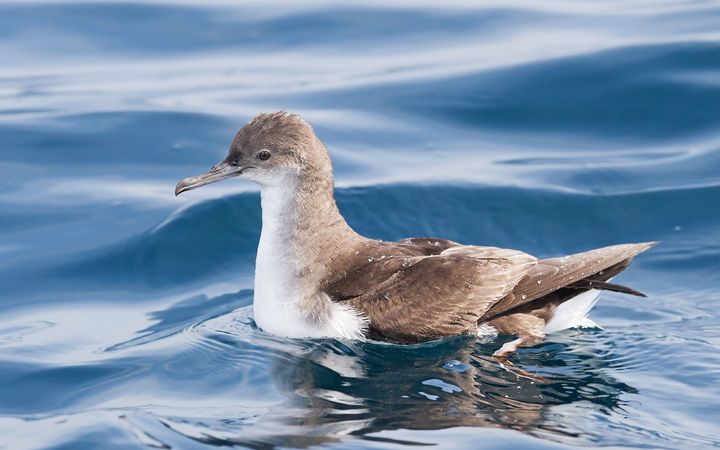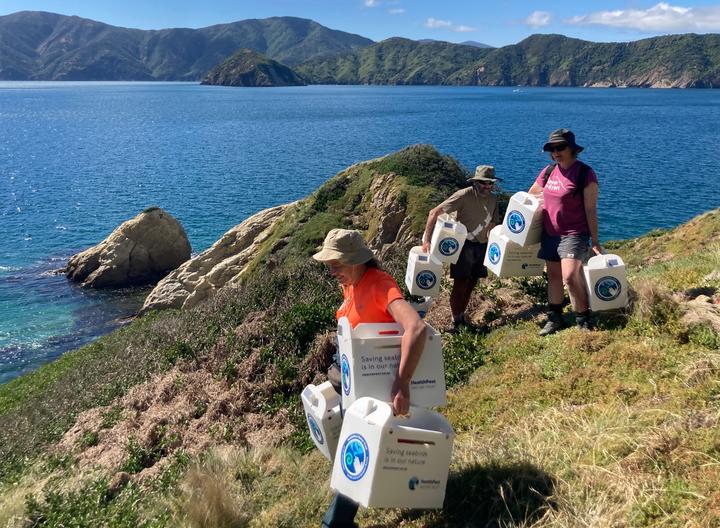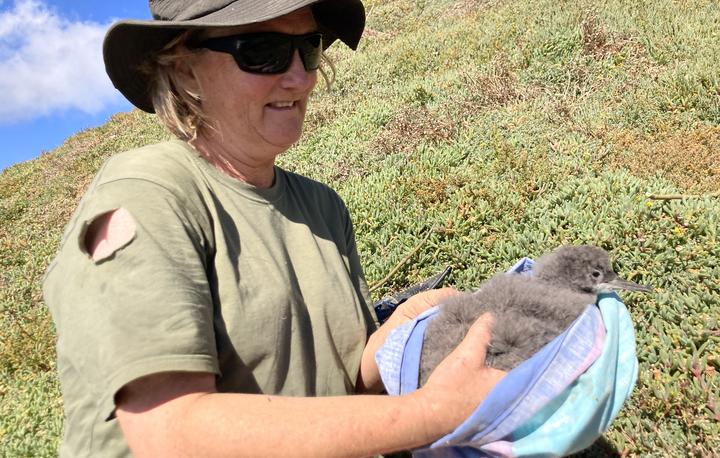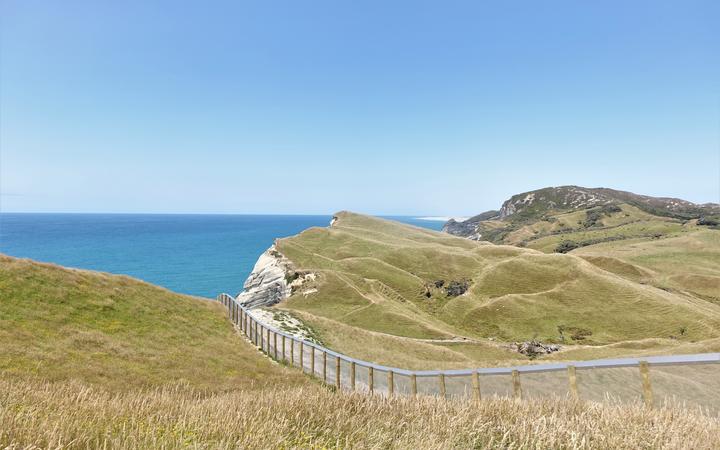
A Fluttering Shearwater at sea
The 2.5-ha Wharariki Ecosanctuary at Cape Farewell, in Golden Bay, New Zealand has recently received 50 Fluttering Shearwater Puffinus gavia chicks that have been translocated from Long Island, Marlborough Sounds. The cape forms the northernmost tip of South Island. The chicks are being hand fed until they fledge from artificial burrows behind a 200-m predator-proof fence built in 2019.
“There are trapping lines inside and outside the sanctuary and a second internal predator proof fence was built to further protect the fluttering shearwater, which nest in burrows and are particularly vulnerable to predators. A week in, the chicks were doing well with around 10 of the biggest birds able to leave their burrows and stretch their wings in preparation for flight.”

 The sanctuary fence and the translocation underway
The sanctuary fence and the translocation underway
The shearwaters are the first species to be introduced to the fenced sanctuary, an initiative led by HealthPost Nature Trust in partnership with the Department of Conservation and Manawhenua ki Mōhua. It is intended to introduce 250 chicks to the sanctuary in the hope of establishing a new colony on the mainland, where the species used to breed before becoming restricted to offshore islands.
"Large seabird colonies on coastal cliffs were once common around mainland New Zealand before pests such as rats and stoats were introduced and land clearance destroyed the habitat they depended on. These combined pressures decimated [sic] seabird numbers. Significant populations of burrowing seabirds are now largely relegated to offshore islands.”
Read more of the sanctuary and translocation here and here.
John Cooper, ACAP Information Officer, 14 February 2022

 English
English  Français
Français  Español
Español 